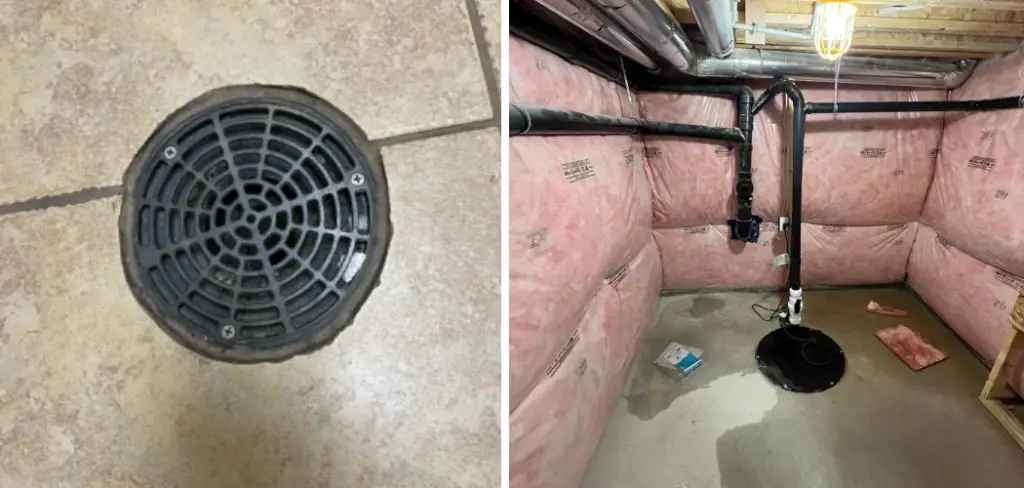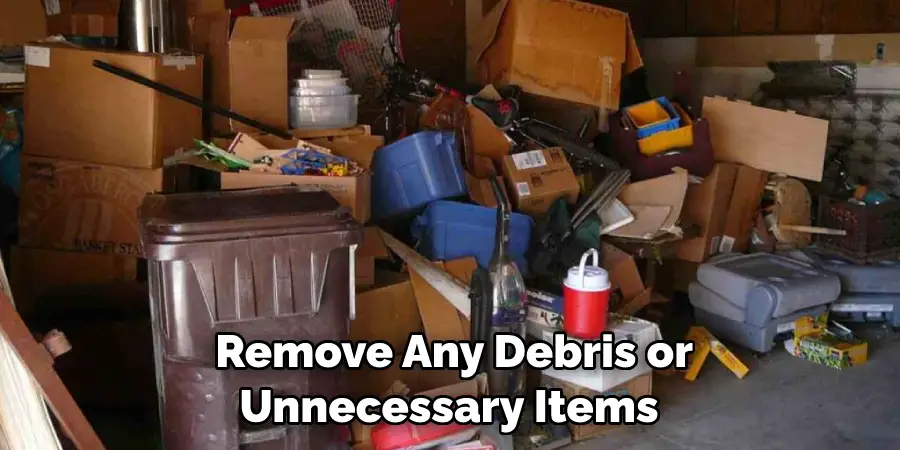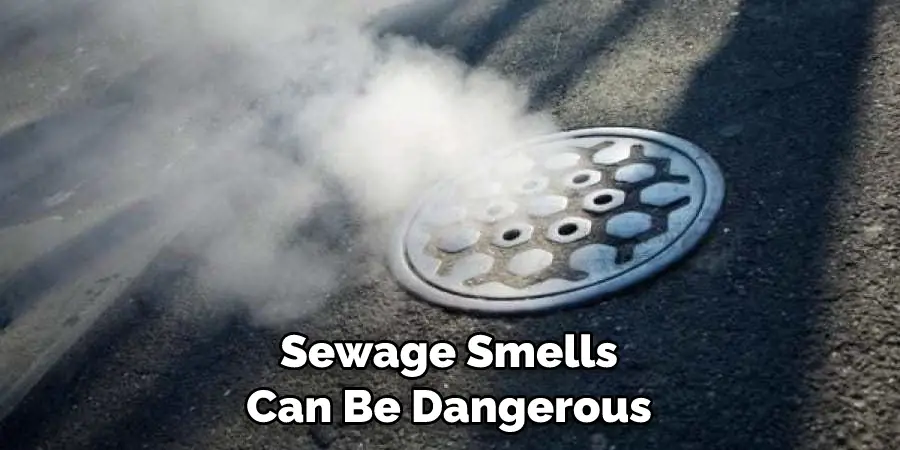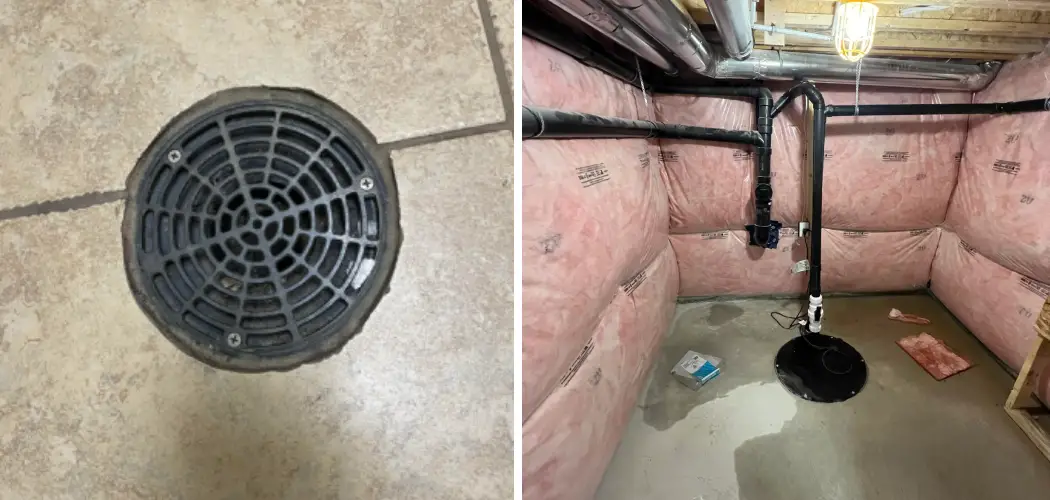Are you plagued by an unsavory smell in your basement? You know the smell – a mix of sewage and wet rot with just a hint of mildew thrown in. It’s enough to make you want to never open the door to that musty, smelly room again. But don’t give up hope – this problem can be solved!

With some determination and elbow grease, it is possible to get rid of the disgusting odor once and for all. In this blog post on how to get sewage smell out of basement, we’ll provide step-by-step instructions on how to tackle foul-smelling basements so you can reclaim your favorite space and enjoy it without having to plug your nose first!
Why Does My Basement Smell Like Sewage?
Before we dive into the nitty-gritty of removing the smell, let’s take a moment to understand why your basement may smell like sewage in the first place. There are several possible reasons for this unpleasant odor:
- Clogged or Damaged Sewer Lines
- Blocked Vents or Pipes
- Improperly Installed Plumbing Systems
- Sewage Backup or Leaks in the Basement
- Water Damage Leading to Mold and Mildew Growth
It’s important to identify the root cause of the problem before beginning any cleaning process, as it will help you determine the most effective method for removing the smell.
11 Step-by-step Guidelines on How to Get Sewage Smell Out of Basement:
Step 1: Safety First
Before you begin, make sure to put on protective gear such as gloves, a face mask, and eye protection. Sewage contains harmful bacteria and toxins that can cause health issues if not handled properly. It’s better to be safe than sorry! You should also ensure that the room is well-ventilated to avoid inhaling any noxious fumes. But in case you feel overwhelmed or uncomfortable, don’t hesitate to call a professional for help.

Step 2: Locate the Source of the Smell
As mentioned earlier, it’s crucial to identify what is causing the smell. This will guide your cleaning process and ensure that you effectively get rid of the odor. Check all areas of your basement, including walls, floors, and pipes, for any visible signs of leaks or damage. Also, inspect your sewer lines and vents for blockages.
Step 3: Open Doors and Windows
Open all doors and windows in the basement to get some fresh air circulating. This will help dilute the smell and remove any lingering odor from the room. This is an essential step, especially if you plan on using chemical cleaners in the next steps. You don’t want those fumes trapped in a closed-off space! It’s also a good idea to place fans strategically around the basement to keep the air moving.
Step 4: Clean Up Any Standing Water
If there is any standing water in your basement, it’s crucial to remove it immediately. Not only does it contribute to the smell, but it can also lead to mold and mildew growth if left unattended. Use a wet-dry vacuum to suck up the water, and make sure to dispose of it outside or away from any drains. It’s essential to wear protective gear for this step, as you don’t want to come into contact with any contaminated water.
Step 5: Remove Debris and Clutter
A cluttered basement can quickly turn into a breeding ground for bacteria and mold. Take some time to remove any debris or unnecessary items from your basement. This will not only make it easier to clean, but it will also prevent any potential sources of bad smells from accumulating. But don’t just throw everything away consider donating or recycling items that are still in good condition.

Step 6: Scrub the Floors and Walls
Using a mixture of warm water and detergent, scrub down all surfaces in your basement. This will help get rid of any visible dirt and grime, as well as eliminate any bacteria or mold in the area. For tougher stains, you can use a mixture of baking soda and water or a vinegar solution. Make sure to thoroughly rinse and dry the area after scrubbing.
Step 7: Clean Your Drains
Drains are often overlooked when it comes to cleaning basements, but they can be a major source of bad smells. Mix equal parts of baking soda and vinegar and pour it down your drains to clear out any debris and bacteria buildup. Let it sit for a few minutes before flushing it with hot water. Although this mixture may not be the most pleasant smelling, it will effectively eliminate any odors in your drains.
Step 8: Disinfect and Deodorize
Now that you’ve cleaned and removed any potential sources of bad smells, it’s time to disinfect and deodorize the area. You can use a commercial disinfectant or make your own by mixing water and bleach. Make sure to follow the instructions on the product or use a mild solution to avoid damaging any surfaces. You can also use baking soda or activated charcoal to absorb any remaining odors in the room.
Step 9: Check Your Sump Pump
If your basement has a sump pump, it’s crucial to make sure it’s functioning correctly. A malfunctioning sump pump can lead to sewage backups and contribute to the smell. If you notice any issues, call a professional plumber to get it fixed. However, if your sump pump seems to be working fine, pour a cup of bleach down it to get rid of any bacteria or mold buildup. It’s also a good idea to flush it with hot water.
Step 10: Fix Any Leaks or Damage
If you locate any leaks or damage while identifying the source of the smell, make sure to fix them before finishing up the cleaning process. This will prevent future odors and potential water damage. If the damage is extensive, it’s best to call a professional for help. But for smaller repairs, you can use waterproof sealants or repair kits. You can also use a dehumidifier to prevent moisture buildup and reduce the chances of mold growth.

Step 11: Regular Maintenance
To ensure that your basement remains smell-free, it’s essential to regularly maintain and clean it. This includes keeping an eye out for any potential issues, cleaning drains, and properly disposing of any waste or debris in the area.
You can also use natural deodorizers such as essential oils or baking soda to keep your basement smelling fresh. With proper maintenance, you can prevent future sewage smells and keep your basement a clean and healthy space.
Follow these step-by-step guidelines on how to get sewage smell out of basement, and you’ll effectively get rid of any sewage smell in your basement. Remember to always prioritize safety and call a professional for help if you feel overwhelmed or unsure about the process. With proper care and maintenance, you can keep your basement smelling fresh and clean at all times!
Do You Need Professional Help?
In some cases, the sewage smell may be too strong or persistent for DIY cleaning methods to work effectively. If you’ve followed these steps and are still experiencing a sewage smell in your basement, it’s best to call a professional for help. They have the necessary equipment and expertise to deal with more severe cases of sewage odors. Additionally, they can also identify and fix any underlying issues that may be causing the smell.

Don’t hesitate to reach out for professional assistance if needed. Ultimately, keeping your basement clean and well-maintained is the key to preventing sewage smells from occurring. With regular upkeep and proper cleaning techniques, you can ensure a fresh and healthy environment in your home. So don’t let a sewage smell linger in your basement any longer – follow these steps and enjoy an odor-free space!
How Much Will It Cost?
The cost of getting rid of a sewage smell in your basement will depend on the severity of the issue and whether you need professional assistance. If it’s a minor issue that you can handle yourself, the cost will primarily be for cleaning supplies and any necessary repair materials.
However, if the problem is more extensive or requires professional help, it may cost several hundred to thousands of dollars. It’s always best to consult with a professional for an accurate estimate and to ensure the issue is properly resolved.
Remember, proper maintenance can help prevent costly sewage smells in the future, so it’s worth investing in regular upkeep. Don’t let cost deter you from addressing this issue – a healthy and clean living space is priceless! So make sure to budget accordingly and prioritize the well-being of your home.
Now that you know how to get the sewage smell out of the basement, you can take action and eliminate any unpleasant odors for good. Happy cleaning!
Frequently Asked Questions:
Q1. Can a Sewage Smell Be Dangerous?
A1. Yes, sewage smells can be dangerous as they often indicate the presence of harmful bacteria and mold. It’s essential to address the issue promptly to prevent any health risks.

Q2. How Do I Prevent Sewage Smells in the Future?
A2. Regular maintenance and proper disposal of waste can help prevent sewage smells from occurring in the future. Checking for any leaks or damage and fixing them immediately can also prevent potential issues.
Q3. Can Essential Oils Help Get Rid of Sewage Smells?
A3. Yes, certain essential oils like tea tree and eucalyptus have antimicrobial properties that can help eliminate sewage smells. Mix a few drops with water and spray it around the affected area for a natural deodorizing effect.
Q4. Can I Use Vinegar Instead of Bleach as a Disinfectant?
A4. Yes, vinegar is also an effective disinfectant and has natural deodorizing properties. Mix equal parts water and vinegar and use it to clean surfaces where the sewage smell is present. However, for tougher smells or stubborn stains, bleach may be a more effective option. Remember to always spot test before using any cleaning product on surfaces.
Conclusion
Although addressing a sewage smell in your basement can seem daunting, it is possible to get rid of the smell with the right materials and determination. After correctly diagnosing the root cause of the smell, you can work with a professional team or try some DIY methods of removing it.
Following each step on how to get sewage smell out of basement carefully should help ensure that you have success in eliminating the unwelcome scent from your home.
Remember, it takes time and effort to make sure your basement is free from any odors and remains sanitary. With just a bit of hard work, your basement can smell fresh again in no time at all! So don’t delay – take action today and do what you can to start reducing those nasty sewage smells as soon as possible.

